What are the 5 Active Listening Skills? Mastering the Art of Effective Communication
In the fast-paced world of communication, mastering active listening skills has become more essential than ever. I freelance trainer, understand the significance of these skills in fostering meaningful connections, enhancing interpersonal relationships, and ensuring effective communication in both personal and professional spheres. In this comprehensive guide, we delve deep into the realm of active listening, exploring the five pivotal skills that can transform the way you engage with others.
Table of Contents
Understanding the Importance of Active Listening
Active Listening: A Pillar of Effective Communication
Active listening is more than just hearing words; it involves fully comprehending the message being conveyed, both verbally and non-verbally. It is a skill that empowers individuals to respond thoughtfully, demonstrating empathy and understanding. I emphasize the importance of active listening as a fundamental element of successful communication.
The Five Key Active Listening Skills
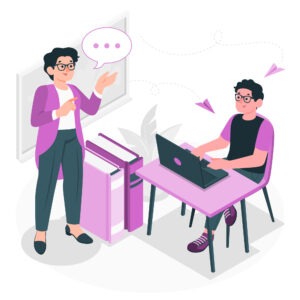
Skill 1: Receiving
The first step in active listening is receiving the message. This involves not only hearing the words but also paying attention to the speaker’s tone, body language, and emotions. By being fully present and engaged, you create an environment where the speaker feels valued and respected.
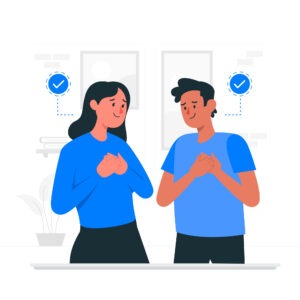
Skill 2: Understanding
Understanding the message is more than just comprehending the words. It requires grasping the underlying emotions and intentions behind the communication. This skill enables you to ask relevant questions, seeking clarification when needed, and ensuring that you have a complete understanding of the message.
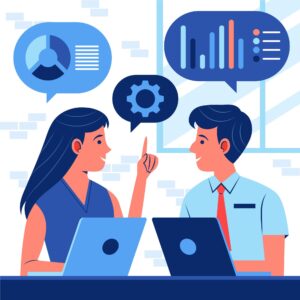
Skill 3: Remembering
Remembering the details of a conversation is crucial for building trust and rapport. It demonstrates your genuine interest in the speaker and the topic at hand. Utilizing memory techniques and active engagement, you can retain important information, making the speaker feel heard and respected.
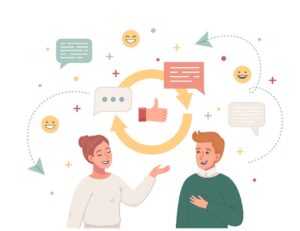
Skill 4: Evaluating
Evaluating the message involves analyzing the information critically. It requires considering the context, perspectives, and implications of the communication. By evaluating the message, you can respond in a meaningful and informed manner, fostering a constructive dialogue.
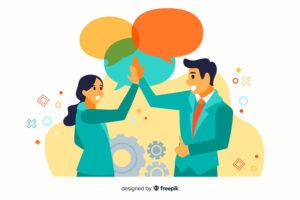
Skill 5: Responding
Responding effectively is the culmination of active listening. It involves formulating a thoughtful reply that addresses the speaker’s concerns, questions, or emotions. A well-crafted response demonstrates empathy, understanding, and respect, further enhancing the quality of the interaction.
How to Improve Your Active Listening Skills

Practice Mindfulness
Mindfulness techniques, such as deep breathing and focused attention, can enhance your ability to be fully present during conversations. By practicing mindfulness, you can minimize distractions and strengthen your focus on the speaker.

Seek Feedback
Constructive feedback is invaluable in the journey to improve your active listening skills. Encourage colleagues, friends, or family members to provide feedback on your listening skills, helping you identify areas for growth and refinement.
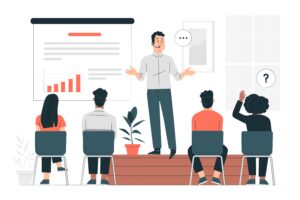
Participate in Active Listening Workshops
Enrolling in active listening workshops and seminars can provide you with practical techniques and real-time feedback. These interactive sessions offer a supportive environment to hone your skills, ensuring that you can apply them effectively in various situations.
References:
For further insights, explore these resources:
“Active Listening – Hear What People are Really Saying” by Mind Tools
Conclusion
Mastering the art of active listening is not just a professional skill; it is a life skill that can transform your relationships and interactions. I believe in the power of active listening to create meaningful connections and enhance communication. By developing and refining these five key skills – receiving, understanding, remembering, evaluating, and responding – you can navigate the complexities of communication with grace and effectiveness.
You may also view Communication Coach Alexanders Video on Active Listening Tips
Frequently Asked Questions (FAQs) About Active Listening Skills
Q1: What are active listening skills, and why are they important?
A1: Active listening skills involve fully understanding and responding to a speaker with empathy and attention. These skills are vital for effective communication, building trust, and fostering meaningful relationships both personally and professionally.
Q2: How can I enhance my active listening skills?
A2: You can improve your active listening skills by practicing mindfulness, seeking feedback from others, participating in active listening workshops, and actively applying the five key skills: receiving, understanding, remembering, evaluating, and responding.
Q3: Can active listening skills be developed, or are they innate?
A3: Active listening skills can indeed be developed and refined through practice, self-awareness, and a genuine willingness to engage in meaningful conversations. With dedication and effort, anyone can enhance their active listening abilities.
Q4: How can active listening skills benefit my professional life?
A4: In the professional context, active listening skills can lead to improved collaboration, enhanced problem-solving, stronger leadership, and increased productivity. By understanding your colleagues, clients, and team members better, you can build a more cohesive and efficient work environment.
Q5: Are there specific techniques to remember details from conversations?
A5: Yes, there are techniques to remember details, such as repeating information mentally, taking notes, summarizing key points, and visualizing the conversation. These methods can help reinforce your memory and improve your ability to recall important information.
Q6: Can active listening skills help in conflict resolution?
A6: Absolutely. Active listening skills are invaluable in conflict resolution. By genuinely understanding the perspectives and concerns of all parties involved, you can facilitate open communication, find common ground, and work towards mutually beneficial solutions.
Q7: How can I apply active listening skills in my personal relationships?
A7: Active listening skills can strengthen personal relationships by fostering trust, empathy, and understanding. Practice being fully present during conversations, show genuine interest, and respond thoughtfully to the feelings and concerns of your loved ones.
Q8: Are there any situations where active listening skills are not applicable?
A8: Active listening skills are universally applicable and can be beneficial in all types of situations, including professional meetings, personal conversations, negotiations, interviews, and even casual interactions. Being an active listener enhances communication in any context.
Q9: Can active listening skills be helpful in public speaking or presentations?
A9: Yes, active listening skills are valuable in public speaking and presentations. Understanding the audience’s reactions, adjusting your message based on their responses, and being receptive to their feedback can significantly enhance the impact of your speech or presentation.
Q10: How long does it take to master active listening skills?
A10: The time it takes to master active listening skills varies from person to person. It depends on individual dedication, consistent practice, and the willingness to learn from experiences. With regular effort and mindful application, significant improvement can be achieved over time.

